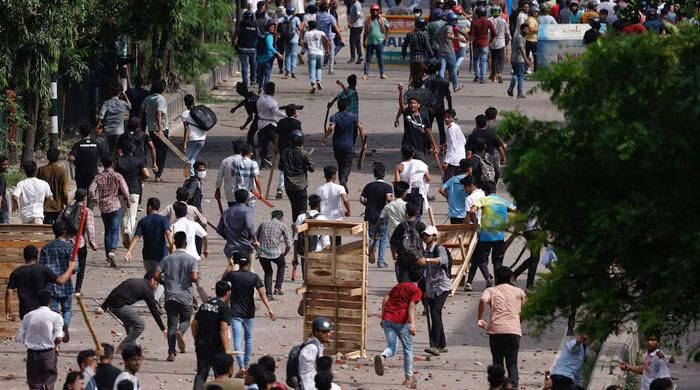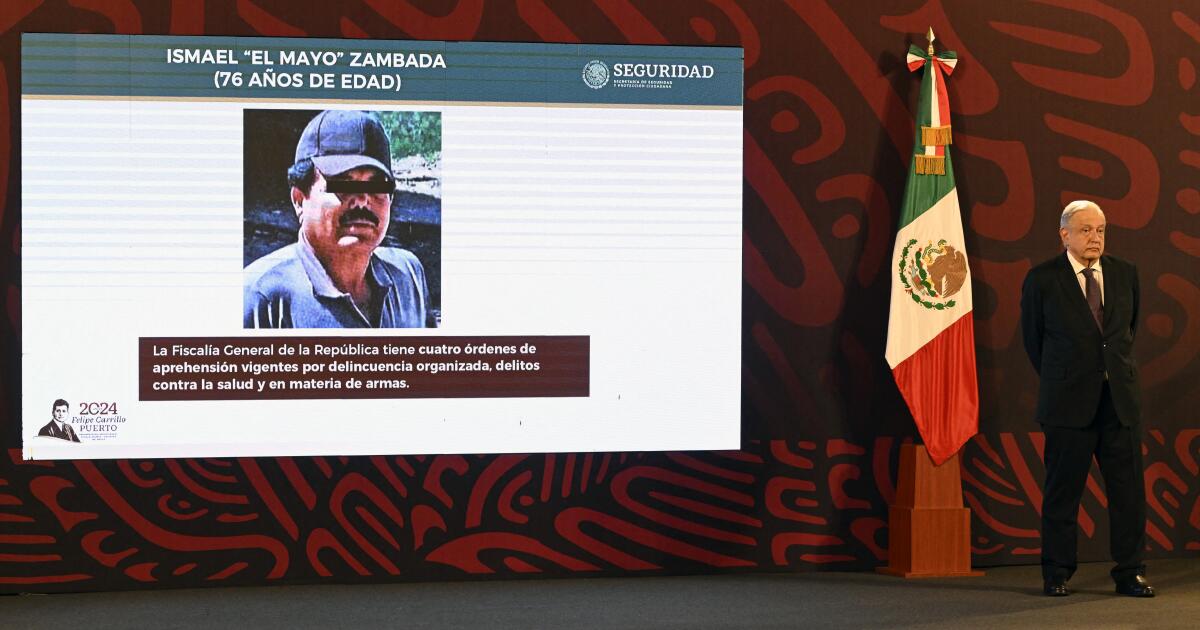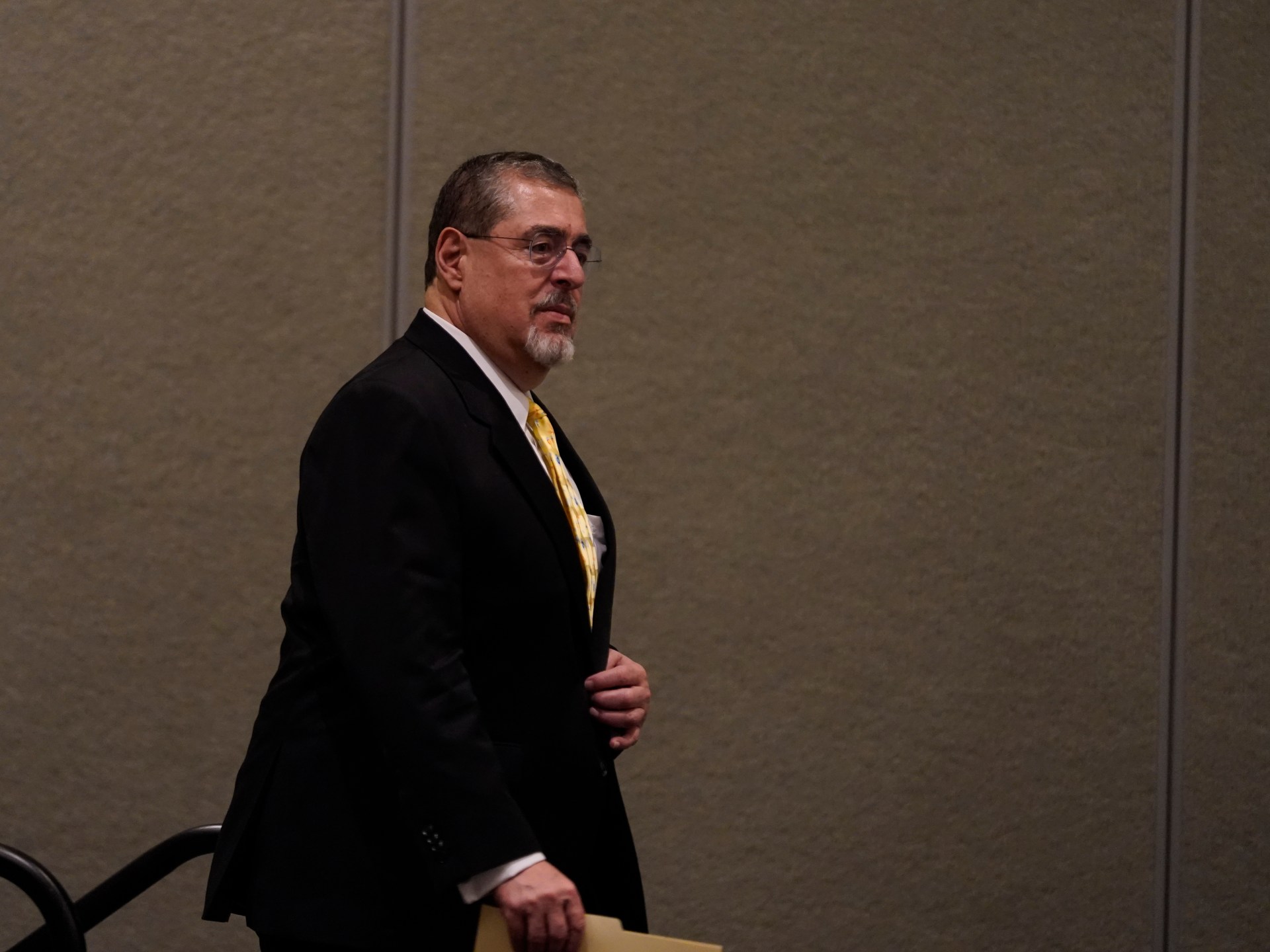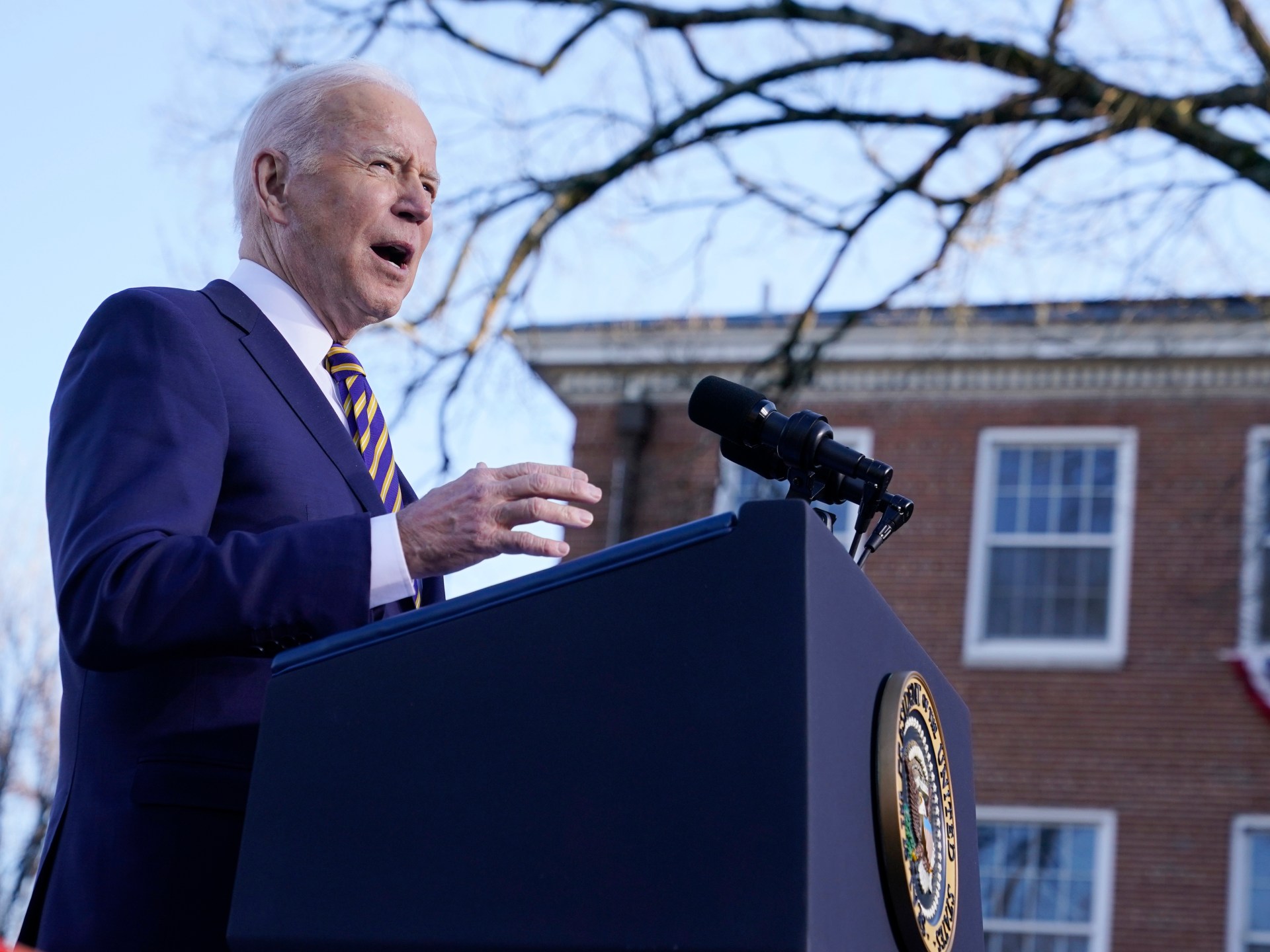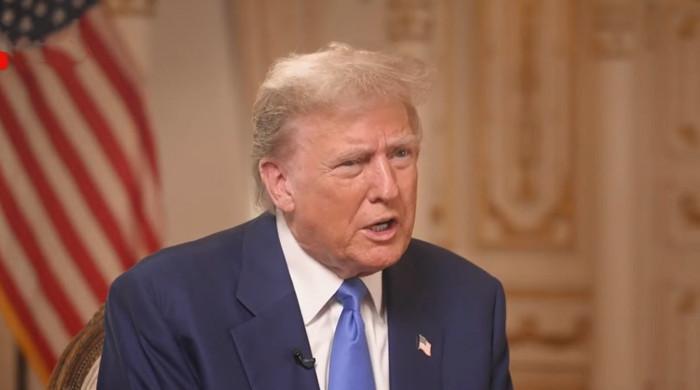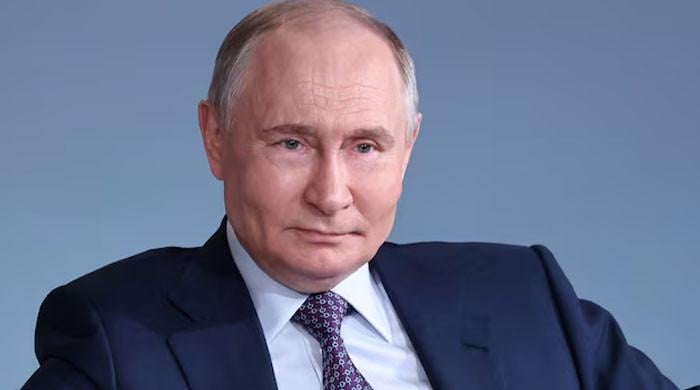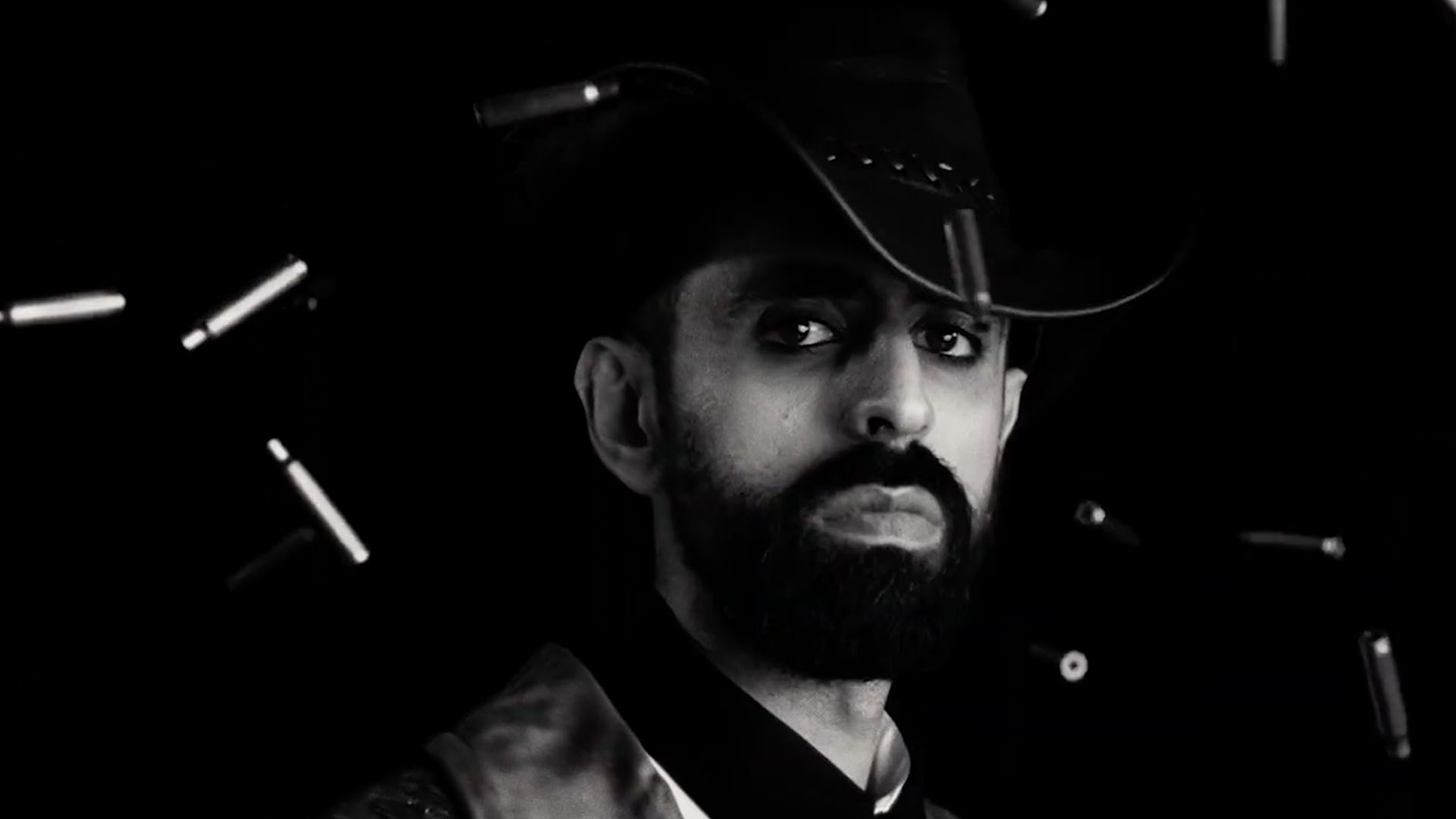- Clashes over quotas leave 400 injured as police fire tear gas.
- US official Miller denounces “violence against peaceful protesters”.
- Closure order issued for “safety of students”: ministry official.
DHAKA: Bangladesh on Tuesday ordered schools across the country to close indefinitely after six students were killed in violent protests that prompted the mobilization of paramilitary forces to maintain order.
All secondary schools, Islamic seminaries and vocational education institutes in the country have been ordered to remain closed until further notice following weeks of growing protests against civil service recruitment policies.
On Tuesday, violence escalated sharply as protesters and pro-government student groups attacked each other with bricks and bamboo poles, and police dispersed demonstrations with tear gas and rubber bullets.
Education Ministry spokesperson MA Khair said: AFP The closure order was issued with “the safety of students” in mind.
The order does not include universities in Bangladesh, where most of the students taking part in the protests are enrolled, as the Education Ministry normally does not have the authority to order their closure.
At least six people were killed on Tuesday as protesters rallied for another day in cities across the country, defying earlier calls by Prime Minister Sheikh Hasina and the Supreme Court to return to school.
Three people were killed in Chittagong and had signs of “gunshot wounds,” hospital director Mohammad Taslim Uddin said. AFPHe added that 35 other people were injured during the clashes in the port city.
Two others were killed in Dhaka, where rival student groups threw bricks at each other and blocked roads at several key locations, paralysing traffic in the megacity of 20 million people.
Police Inspector Bacchu Mia confirmed the deaths. AFPsaying one had succumbed to head injuries, while at least 60 people were also injured.
In the northern city of Rangpur, Police Commissioner Mohammad Moniruzzaman said: AFP that a student had also died in the clashes that occurred there.
He gave no details on how the student died, but said police had fired rubber bullets and tear gas to disperse protesters.
Rangpur Medical College Hospital director Yunus Ali said the student was brought dead to the hospital by other students.
Tauhidul Haque Siam, a journalism student at Rokeya University in the city, said: AFP that supporters of the ruling party had attacked anti-quota protesters, while police fired rubber bullets from shotguns.
“The police opened fire with their shotguns at the protesters,” Siam said, adding that he had been wounded.
He said the dead student “died in the shooting,” but his account could not be independently verified.
As the day progressed and with some key roads across the country blocked by protesters, authorities deployed the Border Guard Bangladesh (BGB) paramilitary force in five major cities, including Dhaka and Chittagong.
Their mission was to “monitor public order in view of the protests over quotas,” a BGB spokesman explained.
'Violence against peaceful protesters'
Tuesday's clashes came a day after clashes between anti-quota protesters and members of the student wing of the ruling Awami League left more than 400 people injured in Dhaka.
“We are not here to commit violence,” one protester in Dhaka told AFP, declining to give his name for fear of reprisals. AFP.
“We just want our rights, but the ruling party's thugs are attacking our peaceful protests.”
Critics say the plan benefits children of pro-government groups that back Prime Minister Sheikh Hasina, 76, who won her fourth consecutive election in January after a vote without genuine opposition.
Amnesty International subsequently urged Bangladesh to “immediately ensure the safety of all peaceful protesters.”
US State Department spokesman Matthew Miller also denounced “violence against peaceful protesters,” prompting a rebuke from Bangladesh's foreign ministry.

